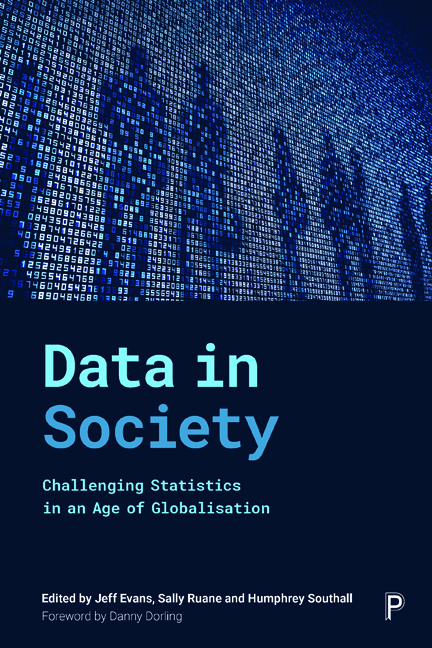Book contents
- Frontmatter
- Contents
- List of figures, tables and boxes
- Notes on contributors
- Foreword
- Preface
- General introduction
- Part I How data are changing
- Part II Counting in a globalised world
- Part III Statistics and the changing role of the state
- Part IV Economic life
- Part V Inequalities in health and wellbeing
- Part VI Advancing social progress through critical statistical literacy
- Epilogue: progressive ways ahead
- Index
8 - Tax justice and the challenges of measuring illicit financial flows
Published online by Cambridge University Press: 30 April 2022
- Frontmatter
- Contents
- List of figures, tables and boxes
- Notes on contributors
- Foreword
- Preface
- General introduction
- Part I How data are changing
- Part II Counting in a globalised world
- Part III Statistics and the changing role of the state
- Part IV Economic life
- Part V Inequalities in health and wellbeing
- Part VI Advancing social progress through critical statistical literacy
- Epilogue: progressive ways ahead
- Index
Summary
Introduction
The quest for tax justice has been all about data. Starting in 2003, the Tax Justice Network, of which I was a co-founder, set itself the task (albeit implicitly stated) of demanding that the right amount of tax was paid in the right place, by the right person, at the right rate and at the right time. The word ‘right’ was given a very particular meaning within this context: when used in this way, it suggests that how a transaction is reported for tax purposes accurately reflects the actual substance of the economic transaction that has taken place requiring that disclosure be made (Murphy, 2016). The definition is important because the whole tax abuse industry expends vast amounts of effort ensuring that transactions are not declared in this way. In other words, its primary goal is to make sure that tax is declared in a way that does not reflect economic reality. What that means is that either the wrong person declares it, or it is declared in the wrong place, or at the wrong rate, or at the wrong time. Of course, it may also not be declared at all. In combination, this action is intended to deprive democratically elected governments of the revenue that they rightfully think is theirs to enjoy. The consequence is that either government goes short of the funds it seeks, with consequence for the programmes it can deliver, or those people who accept that paying their taxes is an obligation with which they must comply are asked to make good the shortfall.
At its core, then, the whole tax justice campaign has been about the most basic of political economic struggles: it is about the ability of the state to collect the money that is due to it. That is, of course, one of the oldest issues in human history that has given rise to everything from war to revolution as well as to political and social turmoil in its time. The tax justice campaign chose to make the struggle one for the supply of data from behind a wall of secrecy created by a combination of multinational corporations (MNC) and tax havens.
There is no agreed definition of a tax haven (Palan et al, 2010). For that reason I actually prefer the term secrecy jurisdiction.
- Type
- Chapter
- Information
- Data in SocietyChallenging Statistics in an Age of Globalisation, pp. 103 - 114Publisher: Bristol University PressPrint publication year: 2019



